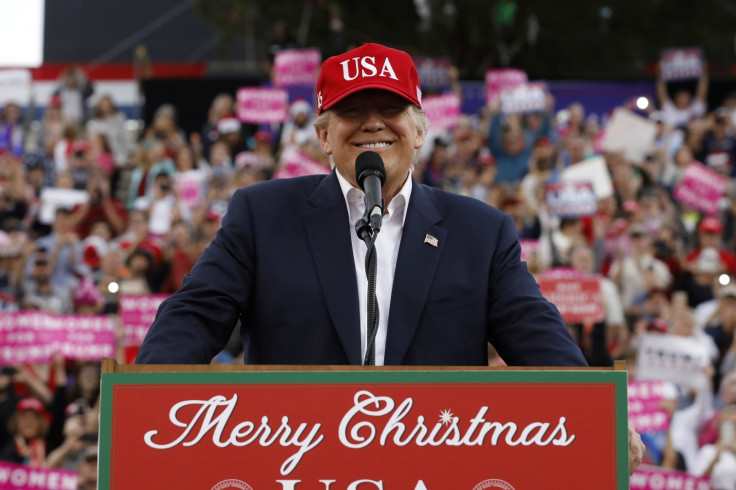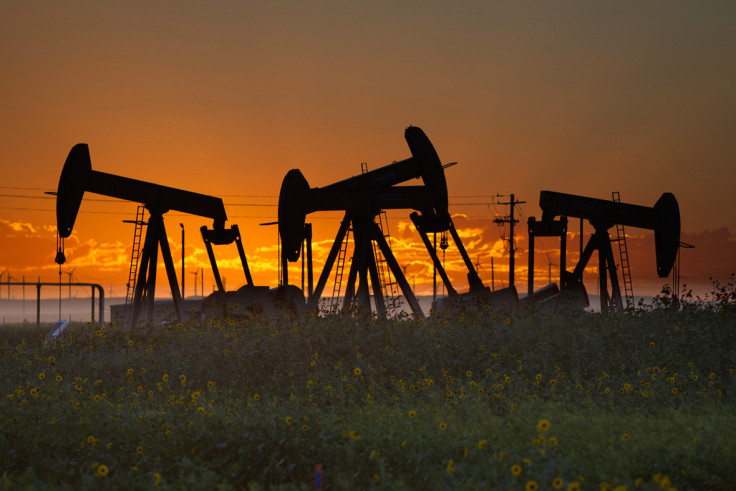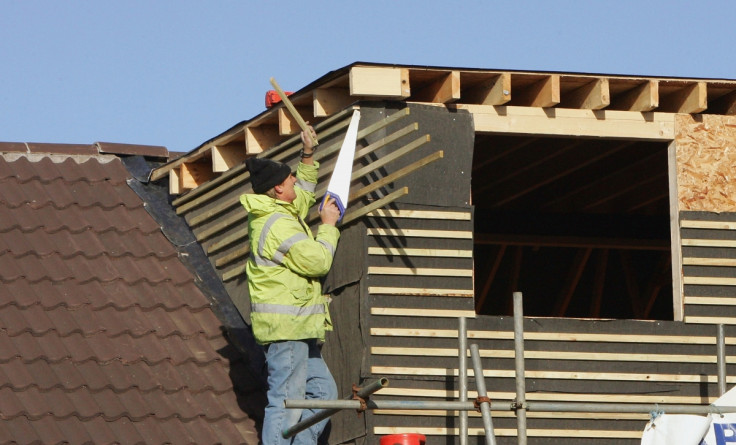FTSE outlook 2017: Investors are betting big on the magic of Donald Trump
The rollercoaster of 2016 looks set to crash into next year - with rapid growth or a trade war at the end of the ride.

The world had to be pulled out of cardiac arrest several times in 2016 – but that didn't stop shareholders making gains.
Voters gave the establishment a kicking over Brexit in June, Donald Trump's US election in November and Italy losing its reform referendum this month.
But that didn't stop the FTSE 100 Index jumping 12.6% this year to around 7028 in the third week in December. The market also hit a new all-time intraday high in early October, boosted by a 15% fall in the pound after Brexit, which inflated the earnings of internationally-focused firms on London's main benchmark.
In New York the Dow Jones Industrial Average has surged around 14.5% this year, with the election of the Republican billionaire property mogul spurring gains. This is being called the 'Trump Bump'.
The President-elect has promised to cut taxes, slash regulation and launch a $1trn infrastructure programme. This led excited investors to add around 2,000 points to the Dow Jones since the election, and last month closed above 19,000 for the first time in its 120-year history. It is already closing in on 20,000.
Early November saw global investors knock $1.5trn (£1.2tn) off bond prices, as they sold this safer asset and bought higher paying shares.
However, the speed and scale of the boost left many analysts perplexed. Michael Cuggino, president and portfolio manager of the Permanent Portfolio Family of Funds said: "Based on market fundamentals, it's not justified."
Oil above $50
In the UK growth among top flight shares was buoyed by miners such as Anglo American and Glencore as trade from China did not collapse as had been feared. Stock in these firms jumped by more than three and two times respectively this year.
Royal Dutch Shell and BP both jumped by more than a fifth in 2016 as the oil price began to recover from the two-year battering crude has taken.

Brent Crude has remained above $50 for most of the year, and oil majors such as BP are beginning to spend on new projects again instead of axing staff and new investment as the industry has endured over the last two years. However, the oil price remains some 65% below its $147.27 all-time high in July 2008.
Investors maybe patting themselves on the back for dodging a bullet this year, but 2017 looks no easier.
Across Europe there are a string of elections, which could unseat the continent's most powerful politician, Angela Merkel in Germany, and may see far-right leader Marine Le Pen elected president in France.
China, which is growing at about 6% a year, has for several years avoided a slump that many economists say its large debts and sprawling property market will deal it. Will 2017 be that year that the world's second largest economy hits trouble?
Trade war
But all eyes on the US and Trump's incoming administration, which comes with little track record but with huge expectations.
Will Trump's low-tax, high-spending plans lead to large-scale job creation and see growth rates more than double to 6%?
This would mean an end to tepid US economic growth, ultra-low interest rates and the beginning of the end of quantitative easing, which even its advocates admit has benefitted stock markets and assets holders more than businesses and households in the real economy.
The alternative may be that Trump makes good on his threat to impose tariffs on Beijing, and sparks a world trade war.

In the UK chancellor Philip Hammond launched the National Productivity Investment Fund to spend £23bn between 2017 and 2022 during the November Autumn Statement to boost the economy post-Brexit. Its focus is on housing, research and development.
Downgraded forecasts
Hammond revealed that the Office for Budget Responsibility had downgraded growth forecasts for next year from 2.2% to 1.4% as a result of the uncertainty caused by Brexit.
Hammond told the Commons: "That's slower, of course, than we would wish, but still equivalent to the IMF's forecast for Germany, and higher than the forecast for growth in many of our European neighbours, including France and Italy."
However, after Prime Minister Theresa May triggers formal Brexit talks by the end of March many economists estimate that the falling pound and mounting inflation will outstrip wages, which have only just begun to rise after years of stagnation.
IHS Global Insight chief UK and European economist Howard Archer said: "The major problem facing the economy – and retailers in particular – is that it looks inevitable that the fundamentals for consumers will weaken markedly over the coming months with purchasing power being increasingly squeezed and the labour market likely weakening."

The chancellor's infrastructure spotlight, which had been expected, has boosted the shares of firms like equipment hire business Ashtead, building materials firm CRH and heating and plumbing company Wolseley. They are also expected to perform well in 2017.
Large steady global businesses
Also, in this environment analysts at Henderson Global Investors said next year they favoured stocks with "resilient growth characteristics" such as firms closely connected to e-commerce, "high quality shopping centres" and "niche specialty sectors such as datacentres".
Other stockpickers add that in such uncertain periods they leaned towards firms with large and steady global businesses that grow solidly by making a series of small-scale acquisitions such as media company RELX, catering business Compass, outsourcer Bunzl, and credit checking outfit Experian.
However, most institutions are not as gung-ho on the year ahead as investors appear to be. Societe Generale is one of the most bullish forecasters around, saying that top flight shares will finish at 7500. Goldman Sachs predicts 7300, while CMC Markets anticipates a bearish 6300 year-end total.
The 2016 rollercoaster looks set to continue well into 2017.
© Copyright IBTimes 2025. All rights reserved.






















